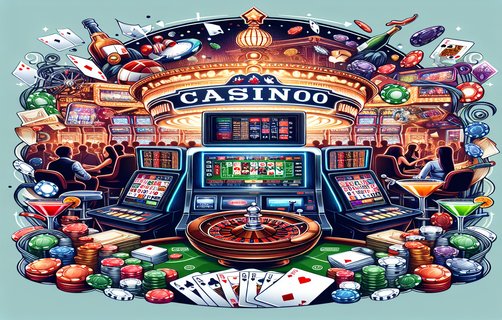The Dynamics of Milan Day Guessing Numbers: An Economic Perspective on Gaming Trends
The world of gambling is a vast and intricate ecosystem, where various elements converge to create an environment ripe for economic analysis. One such intriguing facet of this ecosystem is the concept of “Milan Day Guessing Numbers.” When one examines the landscape surrounding this phenomenon, particularly through the lenses of 3D slots, aggressive betting strategies, land-based casinos, casino affiliates, deposit limits, gameplay fluidity, and casino tournaments, it becomes evident that these components interplay significantly in shaping the gambling experience and its economic ramifications.
To begin with, the emergence of 3D slots adds a layer of complexity to the gambling market. These multi-dimensional gaming options engage players through advanced graphics and animations, heightening user experience. From an economic standpoint, the proliferation of 3D slots reflects a fundamental market response to consumer preferences for more immersive experiences. This demand influences supply-side dynamics, prompting casinos to invest in technology and innovation to remain competitive. As such, understanding the consumer behavior associated with 3D slots can provide insights into potential market growth, as players may be willing to allocate more of their budget towards visually stimulating and interactive gaming experiences.
Simultaneously, the notion of aggressive betting plays a significant role in shaping the gambling economy. Players employing high-risk strategies often aim for substantial returns, which can lead to volatile market dynamics. This trend reveals the underlying psychology of risk and reward that fuels gambling behavior. Economically, aggressive betting can create a redistributive effect—wherein wealth is concentrated among fewer players who experience big wins, thereby altering the financial landscape of both bettors and casinos alike. Such behavior can lead casinos to adapt their marketing strategies to attract high rollers, further intensifying the rivalry among establishments vying for a share of this lucrative market segment.
Land-based casinos continue to hold a strategic position in this environment, especially when juxtaposed with online platforms. From a geographical standpoint, these physical establishments often serve as entertainment hubs that not only contribute to local economies via job creation and tourism but also act as significant economic influencers through their operational revenues. The experience offered by land-based casinos cannot be wholly replicated online; thus, they maintain an essential niche within the gambling ecosystem. Understanding foot traffic patterns, regional demographics, and spending behaviors in these venues can reveal insights related to consumer spending, drawing a clear link between economic conditions and casino performance.
Casino affiliates emerge as key players in this landscape, particularly in the online gambling space. Their role as intermediaries necessitates looking at the economics of conversion rates and customer acquisition costs. The affiliate model operates essentially on a performance-based basis, where affiliates are compensated for directing traffic and players to casinos. This arrangement significantly impacts marketing expenditures within the gambling industry. By analyzing the effectiveness of affiliate partnerships, casinos can optimize their advertising strategies, thereby influencing overall profitability and market stability.

Furthermore, the aspect of deposit limits becomes essential in understanding responsible gambling frameworks. These limitations are essentially behavioral economic tools designed to curtail excessive spending, fostering sustainable play while simultaneously protecting vulnerable populations. This economic balancing act raises questions regarding the efficacy of such measures. An increase in deposit limits can lead to higher revenues for casinos, while strict limits can mitigate risks associated with compulsive gambling, creating a framework for examining elasticity in gambling behaviors and preferences.

Last but not least, gameplay fluidity refers to the seamless experience players encounter as they navigate through their gambling choices. It is crucial for retaining customers and enhancing overall satisfaction. The economic analysis of user experience—an area ripe for research—can unveil correlations between gameplay fluidity and the propensity to gamble. Furthermore, in the competitive arena of casino tournaments, the incentives created can skew earnings distribution, presenting a unique case of competitive balance and economic prize structures. Tournaments can engage players more deeply, offering substantial opportunities for cementing customer loyalty while influencing revenue streams through entry fees and bets placed.
In conclusion, the exploration of Milan Day Guessing Numbers illuminates multifaceted economic interactions within the gambling sector. By dissecting the influences of 3D slots, aggressive betting, land-based and online casinos, affiliates, deposit limits, gameplay fluidity, and tournaments, one can grasp the nuances of market behaviors and their implications on broader economic landscapes. These interconnected components reflect a dynamic framework where every choice and trend can reverberate through the intricate tapestry of gambling economics.
